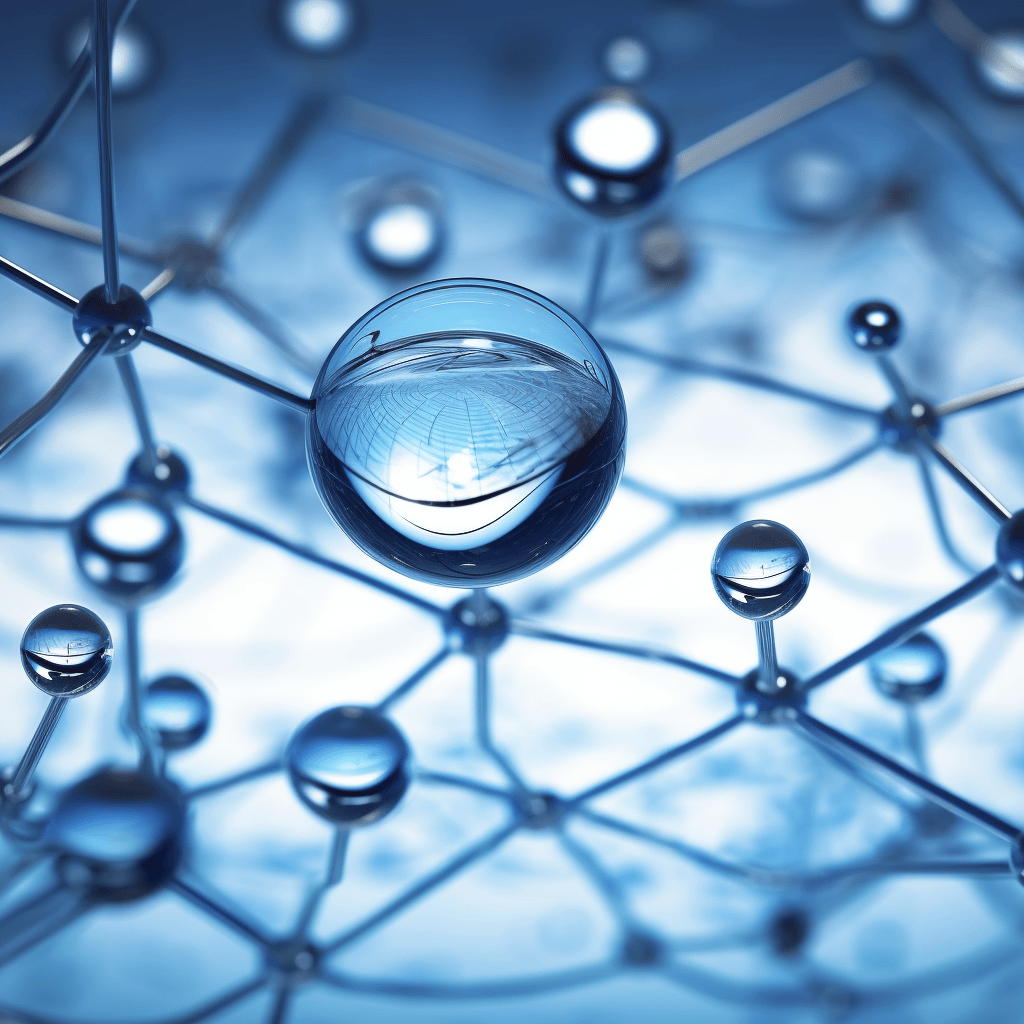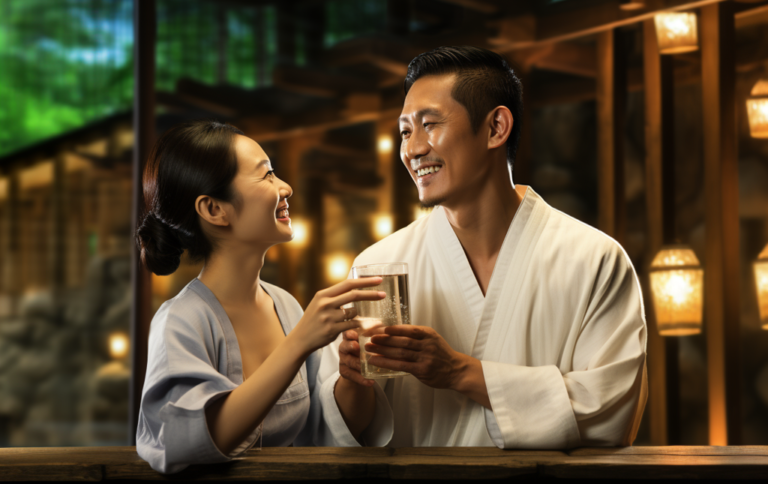Japanese Alkaline Water, also known as medical-grade alkaline water, has sparked curiosity and debate in the health and wellness world. Its claims of enhanced hydration and potential health benefits have drawn global attention.
But what’s the real story? Is alkaline water truly beneficial, or are tap and bottled water just as good?
In this article, we will demystify Japanese Alkaline Water, exploring what exactly it is, its properties, benefits, and whether it truly is the best kind of water out there.
What is Japanese Alkaline Water?
It’s important to clarify the difference between Japanese Alkaline Water and Kangen water. Although they are frequently thought to be the same, a crucial distinction is that Japanese ionized alkaline water is categorized as ‘medical-grade’, whereas Kangen water is not.
Japanese Alkaline Water is a type of water that’s more than just hydrating. It’s processed in a way that raises its pH level, making it alkaline rather than neutral or acidic.
pH is measured on a scale that determines how acidic or alkaline something is. Regular water is right in the middle, but Japanese Alkaline Water tips the scale toward alkalinity.
Normally, the pH of regular tap or purified water falls between 6.5 and 8.5. But Japanese Alkaline Water usually has a pH between 8 and 9.
This water is created using a machine called an ionizer. This machine changes the water’s chemistry, increasing its pH level.
Properties of Japanese Medical-Grade Alkaline Water
Japanese alkaline ionized water is considered medical-grade because of two key properties: molecular hydrogen and microclusters. Here’s a simpler breakdown of these properties:

Molecular Hydrogen
Molecular hydrogen, or H2, is a gas that you can’t see, taste, or smell, but it has several health perks. It fights against oxidative stress in your cells, which is linked to aging and various diseases. This stress can lead to cell damage, but molecular hydrogen helps prevent this by keeping your body’s antioxidants in check.
Molecular hydrogen also supports your organs, reduces swelling, combats allergies, and protects cells from damage, all while boosting energy and helping your body use nutrients better.
Microclusters
The other key property is microclusters. Unlike regular tap water with bigger clusters of 12-14 molecules, Japanese Alkaline Water breaks these down into smaller groups of about 5-6 molecules. These small clusters are easier for your body to absorb, leading to better hydration.
This isn’t just about quenching thirst; it means your body can get rid of acidic waste and toxins more effectively. This detoxification is important for a healthy body and could potentially help prevent health issues.
Kangen Water vs Japanese Medical Grade Alkaline Water
Kangen water and Japanese medical-grade alkaline water may appear to be the same thing. After all, both are created using a water ionizer through a process called electrolysis, which cleans regular tap water and then separates it into hydrogen and oxygen.

But there’s a key difference between the two.
Kangen water is simply a trademarked term for alkaline water produced by Enagic’s water filtration machines – which is marketed by the brand as a medical device. On the other hand, the concept of alkaline water is broader and includes various other ionizers available on the market.
Another notable difference is the price. Kangen ionizers, retailing at nearly $4,000, are about twice as expensive as many other ionizers in the market. This higher cost is associated with the Kangen brand rather than a difference in the quality or health benefits of the water produced.
While Kangen water offers the benefits of alkaline water, it’s not categorized as ‘medical grade’. Medical-grade alkaline water typically includes additional health-oriented features, like enhanced levels of molecular hydrogen and specific micro-clustering of water molecules, which are believed to offer greater health benefits.
Benefits of Japanese Alkaline Ionized Water
Ionized alkaline water is associated with several potential health benefits.
Hydration and drinkability
Ionized water is believed to be more easily absorbed by the body, enhancing hydration without causing bloating. Ionized alkaline water is also described as having a better taste and mouthfeel, which might enhance its drinkability.
Increased detoxification
Ionized water is said to function as an antioxidant, helping to remove harmful toxins and free radicals from the body. By diluting accumulated materials in the body, alkaline ionized water could potentially help reduce cellular damage.
Enhanced skin health
Alkaline water is claimed to boost collagen production, reduce UV damage in skin cells, and potentially reverse signs of skin aging. It may also help improve skin health and reduce issues like acne and eczema.
Improved digestive health
Consuming ionized water in between meals is believed to contribute to an optimal pH balance in the colon, as well as improve digestion and promote regularity. The pH level of the water can differ based on the specific water ionizer and its settings.
Tyent vs Kangen Water Ionizers – What Is the Best Ionizer?
When it comes to choosing a water ionizer, many consider either Kangen water ionizers or other brands. We’re here to give a rundown on why the Tyent brand of water ionizers is the go-to choice for fresh, alkaline drinking water.
One of the major issues with Kangen water ionizers is that they don’t pack quite the same punch in terms of healthy minerals as other ionizers do. Specifically, Kangen water isn’t considered medical grade, which means drinkers are missing out on crucial benefits.
This issue mainly stems from their technology, which relies on added chemicals to get a high pH level.
This approach is a bit out of step with what most other ionizer brands are doing, which is moving towards more natural ways to ionize water.
On the other hand, Tyent ionizers, specifically their UCE-13 Plus under sink model and their ACE-13 countertop model, take a totally chemical-free path and produce medical-grade alkaline water.
As a bonus, Tyent also offers the most features and a great warranty period.
For those considering a home water ionizer, it may be wise to look beyond the Kangen machine. Opting for a Tyent ionizer, like the UCE-13 Plus or ACE-13, is not just a smart money move but also a great choice for quality medical-grade alkaline water.
Conclusion
Japanese Alkaline Water, with its unique blend of molecular hydrogen and microclusters, offers a promising addition to health and wellness routines.
It stands out for its enhanced hydration capabilities and potential health benefits, distinguishing itself from other alkaline waters like Kangen.
Embracing the technology of high-quality water ionizers, such as those from Tyent, can provide access to this delicious, beneficial, and clean water!
By choosing to drink alkaline water, you help your body restore its natural balance.
FAQs
Does Japanese Alkaline Water have any negative effects?
Japanese Alkaline Water is generally safe to drink and doesn’t usually cause serious health issues. It contains natural minerals, which are beneficial. However, people with kidney disease should be cautious, as its high pH might not be suitable for them. The most common side effects are minor, like dry skin or an upset stomach.
How do I get Japanese alkaline drinking water?
To get Japanese alkaline drinking water, you’ll need to use a high-quality water ionizer. These devices, like the Tyent UCE-13 Plus and ACE-13 models, are specifically designed to alter the pH level of your tap water, making it more alkaline.

